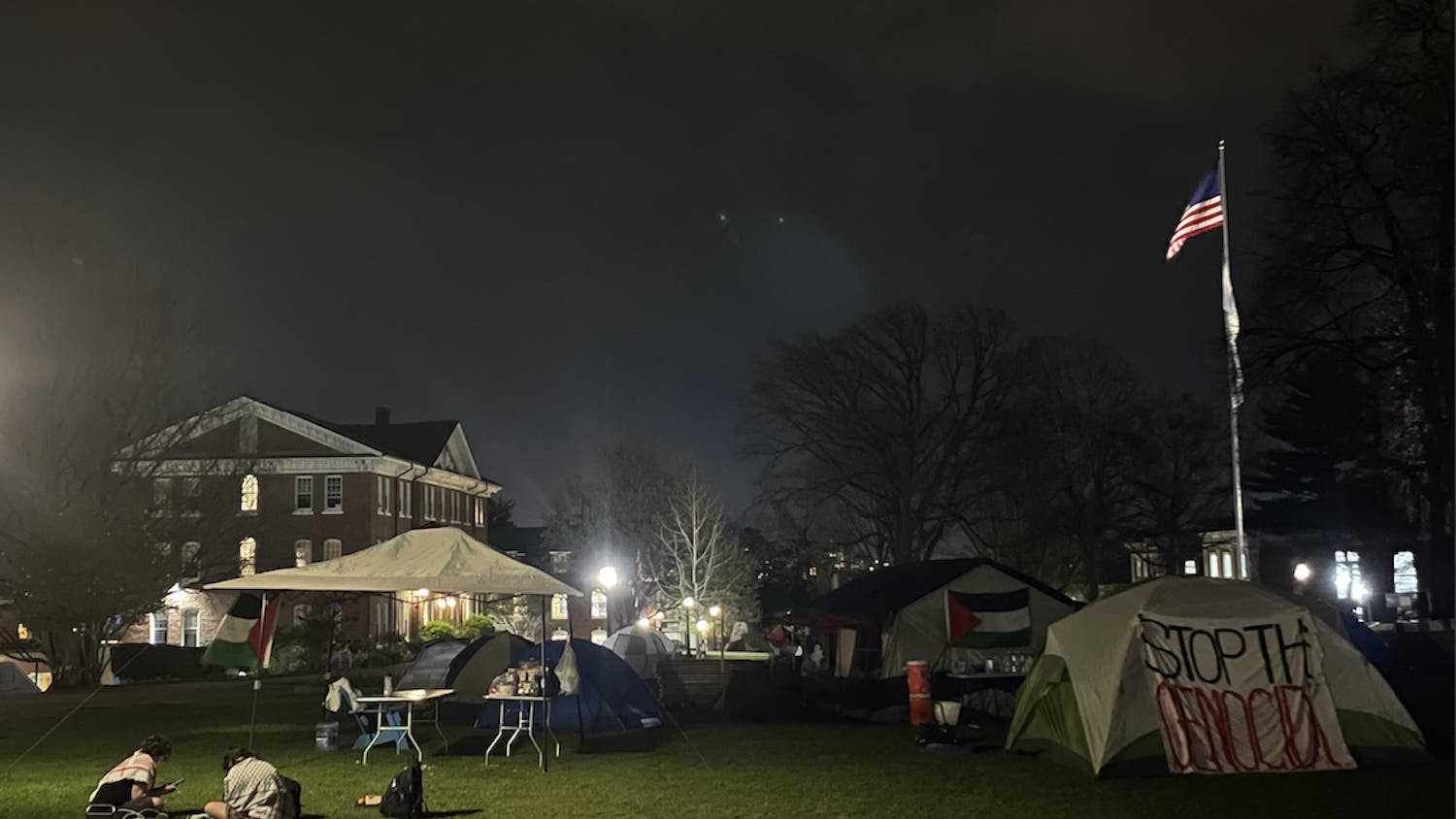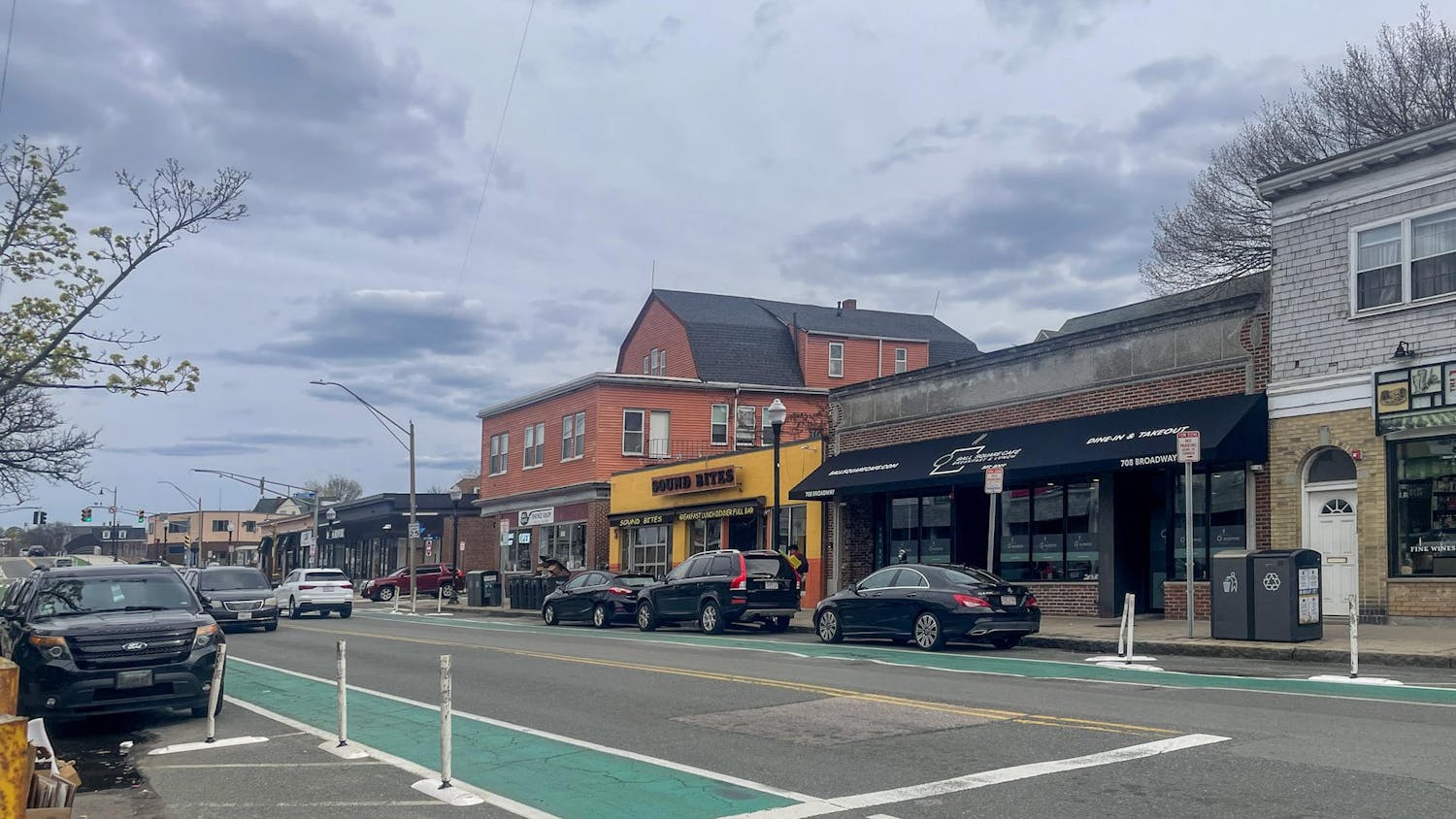Three students submitted applications for candidacy to run for the open community representative positions on the Tufts Community Union (TCU) Senate, according to acting PR Chair for Tufts Elections Commission (ECOM) Joel Greenberg. Applications for candidacy were due Monday.
The Asian American Center received two applications from potential candidates for its community representative position. One student submitted an application to represent the Africana Center.
The Daily is not able to name the applicants at this time because of ECOM regulations preventing candidate campaigning prior to validation of candidacy.
Each applicant will become a candidate pending his or her submission of a 50-signature petition by this evening and its approval by ECOM.
Community reps serve as representatives of four of the Group of Six cultural centers on the Senate. There are four community rep seats, which represent the Africana, Asian American, Latino and Lesbian, Gay, Bisexual and Transgender (LGBT) Centers.
In last spring's community rep elections, there were no candidates for the Africana Center or Asian American Center community rep seats. The Latino and LGBT Centers elected representatives during last spring's elections.
Last semester's elections were the first to be held under the new rules regarding community rep elections, commonly called Ref 3, which the student body approved last year.
Under Ref 3, community rep candidates are approved internally by their respective culture centers, and then elected by the full student body. Community reps now also enjoy full voting rights on the Senate, including the ability to vote on financial matters.
Fielding community rep candidates for the Sept. 20 elections was difficult for some culture groups that have not yet elected their leadership or held general interest meetings, according to Latino Center Community Rep Zoe Munoz.
The Pan-African Alliance has not yet elected its president or held general interest meeting, where it would have advertised information about running for the Africana Center's community rep seat, Munoz, a sophomore, said.
"The fact that the elections for community rep are taking place before those general interest meetings… is problematic," Munoz said. "Those are the spaces where we give people information about the Senate and being involved in campus life, about representing the community."
Greenberg said ECOM scheduled the community rep elections to coincide with the other TCU elections on Sept. 20 in order to maximize voter turnout.
"We find the more elections we have the worse the turnout is at the ones in the middle," Greenberg said. "Having the entire election process on the same day benefits everybody."
Munez also cited the more burdensome requirements for community rep elections as a possible deterrent for candidates.
Whereas previously, community reps were elected by individual student groups, under Ref 3, they must submit a 50-signature petition, participate in two forums and run on a school-wide ballot.
It was unclear whether the dearth of candidates in last semester's community reps elections did not merely reflect a lack of interest in Senate in general. All current regular senators walked onto their positions without elections due to a lack of candidates, according to TCU Vice President Wyatt Cadley.
Several students involved in the spring elections attributed the lack of candidates to confusion about the new voting process.
"Whenever you're instituting a new process for the first time there's going to be ambiguity in implementation," Cadley, a junior, said.
Under Ref 3, candidates must now first submit applications to their cultural centers. If more than two students apply, then ECOM will oversee an internal election within the center to approve candidates for the general election.
If there are two or fewer applicants, then they are automatically approved and put on the school-wide ballot pending the verification of his or her 50-signature petition, Greenberg, a senior, said.
Since two students or fewer applied to run for the community rep seat in both the Africana and Asian American centers this year, all applicants will automatically be approved as candidates so long as they submit a verifiable 50-signature petition by tonight, Greenberg said.
The process of running the internal election has proved difficult in practice.
Junior Mike Borys, who served as ECOM's technician last semester, said Ref 3 rules do not clarify how to conduct the election process within the cultural centers.
"It's a very poorly written law," he said.
The Senate's bylaws do not clearly designate a specific group to review applications, instead allowing the "officers of a TCU-Recognized Group, or a group of student leaders from a Group of 6 Center, with the support of the Director of that Center" to oversee the review.
Munoz noted that the negative tone surrounding last year's debate about Ref 3 may have also deterred minority students from seeking the position.
"It's hard to want to get involved in something like that when you know that a lot of people don't like it and don't like what you're doing and are not going to take you seriously because they don't take the position seriously," Munoz said.
Munoz said the community rep position was poorly advertised. She learned of the election last spring only after the application deadline had passed at a meeting of the Association of Latin American Students.
"There really had been no advertising or anything at the Latino Center, I didn't see anything on TuftsLife, I didn't see any flyers or anything on campus," Munoz said. "It was really lazily put together."
— Amelie Hecht contributed reporting to this article.





